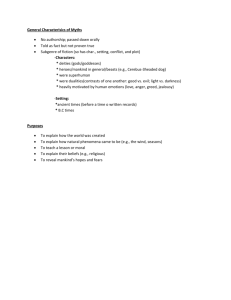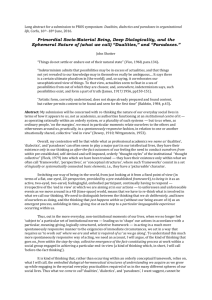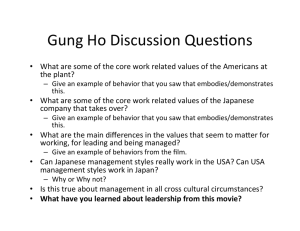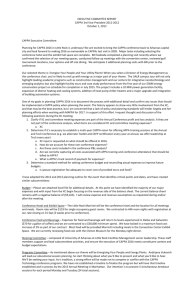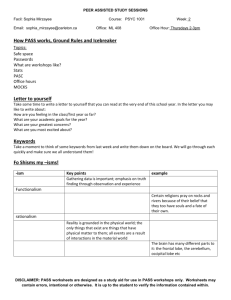HOW THE BODY SHAPES THE MIND
advertisement
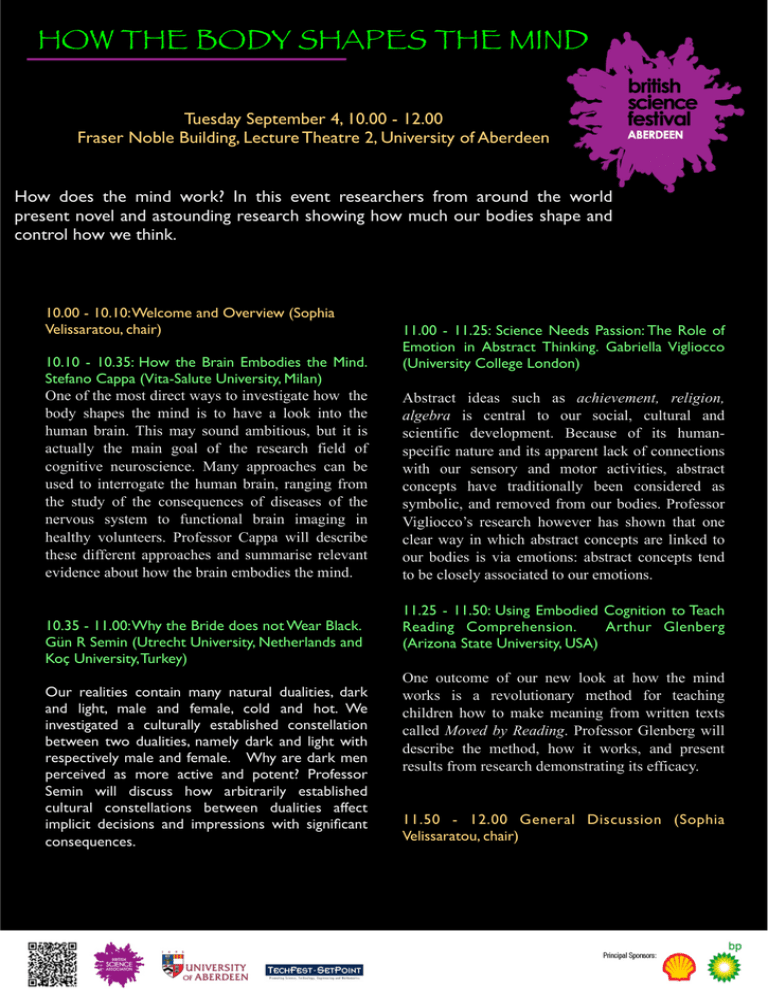
HOW THE BODY SHAPES THE MIND Tuesday September 4, 10.00 - 12.00 Fraser Noble Building, Lecture Theatre 2, University of Aberdeen ccccc How does the mind work? In this event researchers from around the world present novel and astounding research showing how much our bodies shape and control how we think. 10.00 - 10.10: Welcome and Overview (Sophia Velissaratou, chair) 10.10 - 10.35: How the Brain Embodies the Mind. Stefano Cappa (Vita-Salute University, Milan) One of the most direct ways to investigate how the body shapes the mind is to have a look into the human brain. This may sound ambitious, but it is actually the main goal of the research field of cognitive neuroscience. Many approaches can be used to interrogate the human brain, ranging from the study of the consequences of diseases of the nervous system to functional brain imaging in healthy volunteers. Professor Cappa will describe these different approaches and summarise relevant evidence about how the brain embodies the mind. 10.35 - 11.00: Why the Bride does not Wear Black. Gün R Semin (Utrecht University, Netherlands and Koç University, Turkey) Our realities contain many natural dualities, dark and light, male and female, cold and hot. We investigated a culturally established constellation between two dualities, namely dark and light with respectively male and female. Why are dark men perceived as more active and potent? Professor Semin will discuss how arbitrarily established cultural constellations between dualities affect implicit decisions and impressions with significant consequences. 11.00 - 11.25: Science Needs Passion: The Role of Emotion in Abstract Thinking. Gabriella Vigliocco (University College London) Abstract ideas such as achievement, religion, algebra is central to our social, cultural and scientific development. Because of its humanspecific nature and its apparent lack of connections with our sensory and motor activities, abstract concepts have traditionally been considered as symbolic, and removed from our bodies. Professor Vigliocco’s research however has shown that one clear way in which abstract concepts are linked to our bodies is via emotions: abstract concepts tend to be closely associated to our emotions. 11.25 - 11.50: Using Embodied Cognition to Teach Reading Comprehension. Arthur Glenberg (Arizona State University, USA) One outcome of our new look at how the mind works is a revolutionary method for teaching children how to make meaning from written texts called Moved by Reading. Professor Glenberg will describe the method, how it works, and present results from research demonstrating its efficacy. 11.50 - 12.00 General Discussion (Sophia Velissaratou, chair)
